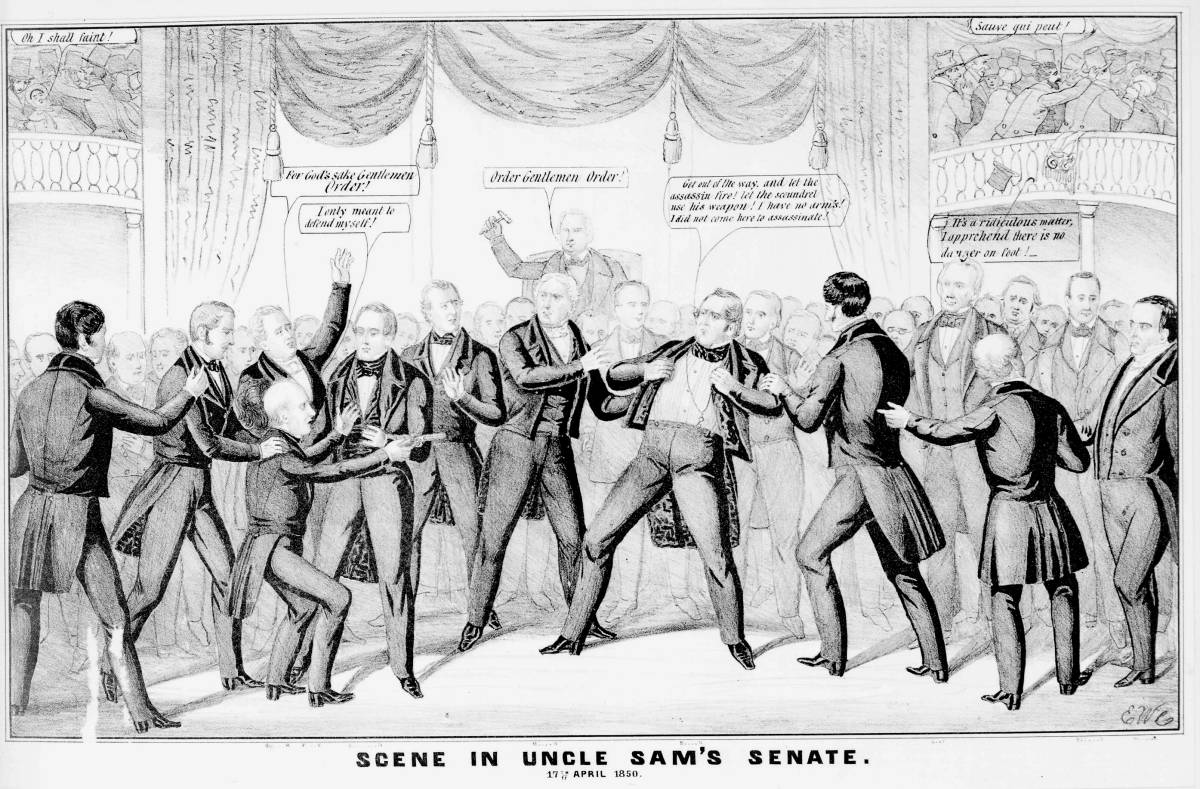About last night:
- Senate primaries
- Only one House incumbent has lost a primary so far -- and he is under indictment.
- Money is not everything: one guy spent $49.55 per registered voter -- and still lost
Webster 1/26/1830:
"Liberty first and Union afterward”; but everywhere, spread all over in characters of living light, blazing on all its ample folds, as they float over the sea and over the land, and in every wind under the whole heavens, that other sentiment, dear to every true American heart—Liberty and Union, now and for ever, one and inseparable!
Daniel Webster, 3/7/1850 (during the South Carolina secession crisis):
I wish to speak to-day, not as a Massachusetts man, nor as a Northern man, but as an American, and a member of the Senate of the United States.Thomas Hart Benton and pistols in the Senate

Kansas-Nebraska Act and Sam Houston
You want polarization? Here's some polarization. Representative Preston Brooks of South Carolina beats Senator Charles Sumner of Massachusetts
.
Fast forward to Lucius Lamar
Lincoln-Douglas debate (24:32)
Congress and the Civil War
The Lincoln movie and parliamentary procedure
The Lincoln movie, more generally...
The congressional oath of office dates from this era.
Background on the impeachment process.
There is an entire site on the Johnson impeachment.
Another impeachment
/cdn0.vox-cdn.com/uploads/chorus_asset/file/3636420/journal.pone.0123507.g002.0.PNG)



